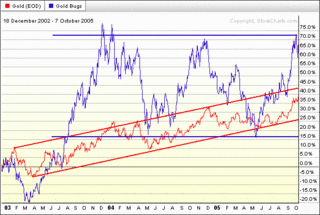By DAVID BARBOZAPublished: October 18, 2005SHANGHAI, Oct. 16 - Move over, New York. This year alone, Shanghai will complete towers with more space for living and working than there is in all the office buildings in New York City.
That is in a city that already has 4,000 skyscrapers, almost double the number in New York. And there are designs to build 1,000 more by the end of this decade.
China's real estate market is so hot that miniature cities are being created with artificial lakes, and the country's nouveau riche suddenly seem eager to put down as much as $5.3 million for a luxury apartment in skyscrapers with names like the Skyline Mansion.
For decades after the Communists took over in 1949, there was relatively little housing construction or office building under central planning. But since the early 1990's, Shanghai and other cities have been making up for lost time. And this year the building boom is at a frenzy, with the nation expected to lay down the finishing blocks on 4.7 billion square feet or more of construction, a record, up from 2 billion in 1998.
"There's no doubt what is happening in parts of China is on a scale we've never seen before," said Richard Burdett, professor of architecture and urbanism at the London School of Economics. "But more importantly, it's the fastest pace of development in the past 50 or 100 years."
In Beijing, the remains of an old Taoist temple now stand in the middle of the parking lot of a new mall more than twice the size of the Mall of America. Big developers are acquiring huge swaths of prime land in the largest cities to build huge residential campuses with kitschy names like Cloudland Water Manor, Eastern Venice, Palais de Fortune and Skyway Oasis Garden.
Such developments dwarf anything being built today in the West. "I'm working on a master plan for a 46-kilometer riverfront area," said Robert Egan, who runs a landscape architecture firm in Beijing called PlaceMakers. "Scale like that doesn't happen in the U.S."
It is not uncommon to see a residential development with 10, 20 or even 30 identical high-rise apartment buildings clustered around sculpted green spaces and artificial waterways.
For increasingly wealthy Chinese, the American dream of a home and a yard has become more like a French villa with a community lake, a town square, a post office, a hospital, a cinema, a church, a hotel, a shopping mall and, of course, a power plant.
A top-of-the-line unit at one development project has a 25-acre palm-shaped artificial lake, which brochures say will feature docks with berths for private yachts.
Prices are soaring. Luxury apartments in Shanghai and Beijing with names like Home of the Tycoons now sell for prices comparable to some high-end properties in New York.
Rising prices have created a circus-like atmosphere in parts of China. Real estate fairs are mobbed, land speculation is rampant and some poor farmers dream about converting their wheat fields into the next Beverly Hills.
Indeed, prices have risen so fast over the last few years and the pace of building has been so furious here and in other large cities that the government and some leading economists have been warning about a huge property bubble in China.
The building boom is a principal reason that China is searching around the world for energy and natural resources: it needs the raw material to build new cities, and the energy to power them. That is helping drive up world commodity prices and threatening global environmental damage.
China's heavy reliance on coal to power its overcharged economy has already made it the world's second-largest producer of greenhouse gases, after the United States. And the World Health Organization says China has 7 of the world's 10 most-polluted cities.
The construction boom is also beginning to wipe out what little is left of the old China, alarming historic preservationists. Indeed, as the world's most-populous country, at 1.3 billion, rapidly modernizes and urbanizes, producing millions of new homeowners, its social and economic fabric is being fundamentally altered.
China's housing rush is being fueled by mortgage rates around 5 percent and huge inflows of foreign capital. But the boom is also driven by landmark government housing reforms from the 1990's that for the first time since the Communist revolution of the late 1940's allowed Chinese to acquire their own homes rather than live in government housing.
As a result of this privatization, thousands of new residential projects are rising in the bustling coastal provinces. And sprawling satellite towns and luxury villa developments are sprouting in what was once farmland.
This may just a suggestion of what is ahead. China expects 75 million more farmers to move to cities over the next five years, amounting to one of the biggest mass migrations in history, according to CLSA, a brokerage house specializing in the Asia-Pacific region.
"China's demand for housing is just getting going," says Andy Rothman, a CLSA analyst in ...
Read the entire article at the NY Times:
http://www.nytimes.com/2005/10/18/business/worldbusiness/18bubble.html

